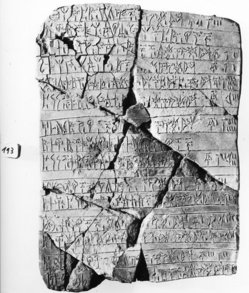(p. C8) Mr. Ober’s approach is theoretical, not narrative-driven. When he does discuss the specifics of classical history, in the second half of the book, he does so largely to support the theses he has developed in the first half about the key causes of Greece’s rise.
These causes, in Mr. Ober’s view, derived from the competitive world of small, self-governing city-states that emerged in Greece starting around 800 B.C. Competition between states led to specialization and innovation, as exemplified by the high-grade ceramics industry at Athens, and to a spirit of “rational cooperation” among the members of each polity (think of those ants). Within each state, self-governance created what Mr. Ober terms “rule egalitarianism”: a sense of fairness and security that “encouraged investment in human capital and lowered transaction costs.” The result was a rise not only in standards of living but also in civic pride, technological progress and refinement of artisanship.
. . .
It’s no accident that Mr. Ober’s terminology overlaps with the language of modern economics–“creative destruction” is a phrase he uses frequently. He wants to encourage comparisons between ancient Greece and the modern West. They offer two examples of “political and economic exceptionalism,” featuring both pluralistic government and the rapid growth of wealth.
For the full review, see:
James Romm. “Greeks and Their Gifts; Competition among self-governing city-states led to specialization, innovation and cooperation.” The Wall Street Journal (Sat., May 23, 2015): C8.
(Note: ellipsis added.)
(Note: the online version of the review has the date May 22, 2015.)
The book under review, is:
Ober, Josiah. The Rise and Fall of Classical Greece. Princeton, NJ: Princeton University Press, 2015.






